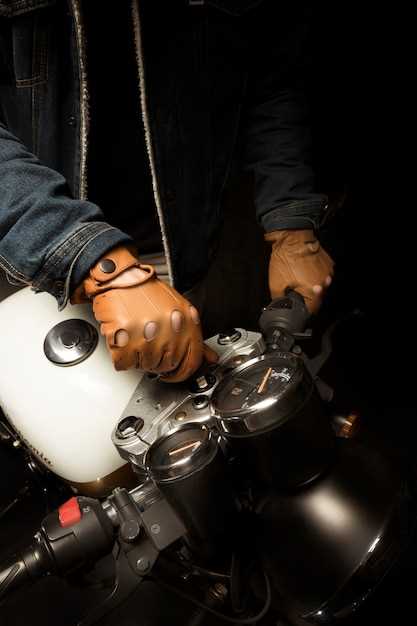
Maintaining a motorcycle is akin to caring for any high-performance machine; it requires attention and regular service. One crucial aspect of this maintenance is the tune-up, a systematic approach to ensuring that every component of the motorcycle operates at its best. Regular tune-ups are not merely a matter of convenience; they significantly enhance the longevity and overall performance of the bike.
A proper tune-up involves a thorough inspection and adjustment of various elements, including the engine, fuel system, and ignition. This meticulous care helps prevent minor issues from escalating into major problems, which can be costly and detrimental to your riding experience. By addressing these elements regularly, riders can ensure smoother operation, improved fuel efficiency, and a more responsive ride.
Moreover, the importance of regular tune-ups extends beyond just performance. Consistent maintenance contributes to the safety of the rider, as a well-tuned motorcycle is less likely to experience mechanical failures on the road. Prioritizing scheduled tune-ups is an investment in both the motorcycle’s health and the rider’s peace of mind.
How Routine Tune-Ups Enhance Engine Longevity
Routine motorcycle tune-ups play a critical role in extending the lifespan of the engine. Regular maintenance ensures that all engine components function efficiently, which minimizes wear and tear over time. By consistently checking and replacing essential elements such as the oil filter, spark plugs, and air filter, riders can help maintain optimal engine performance.
One of the most significant benefits of routine tune-ups is the prevention of engine overheating. Keeping the cooling system in top condition, along with changing coolant regularly, helps avoid serious damage that can occur from excessive heat. This proactive care not only enhances performance but also safeguards the engine from potential catastrophic failures.
Moreover, tune-ups involve checking fuel systems for blockages and inconsistencies. Clean fuel injectors and carburetors ensure that the engine receives the right mixture of fuel and air, improving combustion efficiency. Better combustion leads to more power with less fuel waste, thereby promoting not just performance but also increasing engine longevity.
Routine maintenance also includes inspecting belts and hoses, which, if left unchecked, can lead to significant engine issues. Replacing worn-out components before they fail prevents costly repairs and reduces the risk of engine damage. This habitual care reinforces the importance of being proactive about motorcycle maintenance.
In conclusion, regular tune-ups contribute significantly to the longevity of a motorcycle engine. By investing time in preventive care, riders can enjoy a more reliable and durable riding experience while protecting their engine from premature wear and failures.
Key Components to Check During a Motorcycle Tune-Up

Regular motorcycle tune-ups are essential for maintaining peak performance and ensuring the longevity of your bike. Here are the key components that require attention during this process.
Engine Oil plays a crucial role in the overall functionality of the motorcycle. It lubricates the engine components, reducing friction and preventing overheating. During a tune-up, check the oil level and quality, and replace it if necessary. Regular oil changes help keep the engine running smoothly and efficiently.
Air Filter is another vital element to inspect. A clean air filter allows the engine to breathe properly, improving fuel efficiency and performance. Dirt and debris can accumulate over time, obstructing airflow, so replacing or cleaning the air filter should be part of your routine care.
Spark Plugs are essential for igniting the fuel-air mixture in the engine. Worn or fouled spark plugs can lead to misfires, reduced power, and poor fuel economy. Ensure that these components are in good condition during the tune-up, and replace them when needed to maintain optimal engine performance.
Fuel System also deserves attention. Check the fuel filter and ensure that there are no clogs or leaks. A clean fuel system ensures that the engine receives adequate fuel supply for optimal performance. Consider using fuel system cleaners as part of your maintenance routine.
Chain and Gearing should not be overlooked either. Proper tension and lubrication of the chain contribute to a smoother ride and efficient power transfer from the engine to the wheels. During a tune-up, inspect the chain for wear and ensure that all components are working harmoniously.
Finally, Brake System must be checked for safety. Inspect brake pads, discs, and fluid levels. Ensuring that the brakes are functioning correctly is critical for rider safety and overall motorcycle performance.
By paying attention to these key components during your motorcycle tune-up, you can significantly improve its performance and reliability, making sure it remains a joy to ride.
Signs Your Motorcycle Needs a Tune-Up Immediately

Keeping your motorcycle in peak condition requires regular maintenance, and recognizing the signs that indicate the need for a tune-up is crucial for optimal performance. One of the most apparent indicators is a rough engine idle. If your engine is struggling to maintain a steady RPM or feels shaky, it’s time to consider a tune-up.
Another sign is significant changes in engine performance. If you notice a decrease in acceleration, power, or responsiveness, your bike may require immediate attention to restore its functionality. Additionally, unusual noises coming from the engine–such as knocking or sputtering–are often signals of underlying issues that need prompt care.
Keep an eye out for changes in fuel efficiency. If your motorcycle is consuming more fuel than usual, this could indicate worn-out components such as spark plugs or air filters, all of which are addressed during a tune-up. Moreover, if you experience difficulty starting your motorcycle or notice frequent backfiring, these are clear indicators that your engine isn’t functioning correctly and requires inspection.
Regular tuning can also prevent these issues from escalating, potentially saving you from costly repairs in the future. Always prioritize your motorcycle’s health; it’s essential for both safety and performance on the road.

